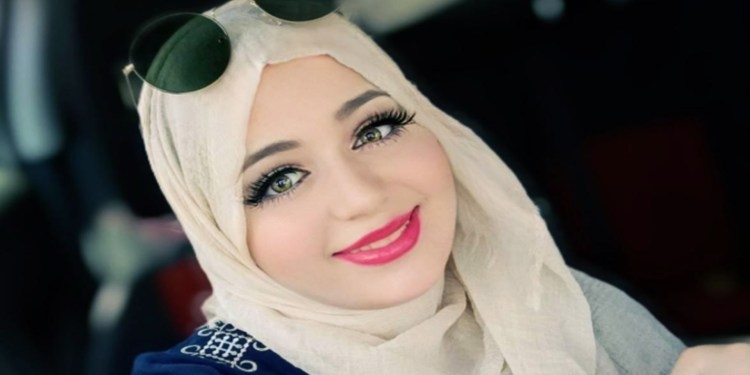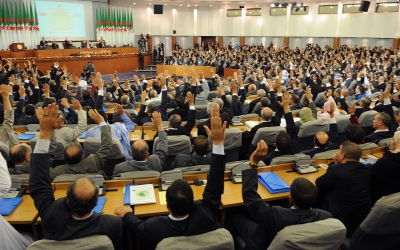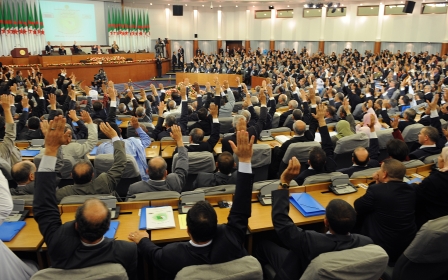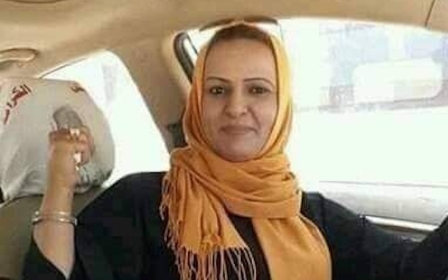Algeria journalist hospitalised after facing threats for uncovering online abuse

An Algerian journalist was hospitalised at the weekend after receiving numerous online threats over her work.
Abir Benrabah was transferred to intensive care on Sunday after feeling unwell.
Her ill health was reportedly due to the stress she was under after receiving a number of threats and blackmail over her work, which included uncovering online harassment faced by women and girls in the country.
Benrabah had been conducting a series of investigations on the subject and had written a report about a Facebook page called “Bnat Bladi (Girls of my Country)”, which she said had been exploiting and blackmailing minors.
Following her report, in which she called for the page to be taken down, the blackmailers then contacted Benrabah, threatening her with physical assault.
A medical examination reportedly concluded that she was suffering from internal bleeding due to high blood pressure, and had now been placed in intensive care, according to her family.
'States must take responsibility'
The Coalition for Women in Journalism, an organisation offering “support for women journalists around the globe”, according to its website, has expressed “concern” for Benrabah's safety and called upon Algerian authorities to conduct a thorough investigation into those said to be blackmailing her.
“Women journalists are targeted around the world for their coverage," the group said in a statement.
"Respective states must take the responsibility to put assertive policies in place to guarantee the safety of journalists.”
Cybercrime continues to increase in Algeria, with more than 1,500 complaints registered this year.
'Respective states must take the responsibility to put assertive policies in place to guarantee the safety of journalists
- Coalition for Women in Journalism
However, women and rights groups have continually criticised authorities for not doing enough to penalise those threatening violence in person and online.
As a result of the distrust in authorities, many cases go unreported, making it difficult to quantify the true scale of the dangers faced by women. The North African country also has high femicide rates.
Despite the establishment of the Cybercrime Prevention and Control Centre in 2009, many victims remain unaware they can take their cases to court to seek justice against their perpetrators.
Police have at times carried out awareness campaigns in schools, youth centres and vocational training centres in order to teach young people how to better protect themselves from the misuse of the internet.
According to the Directorate General of National Security, a number of agreements have been signed with other countries, as well Interpol, to help train authorities to better combat cybercrime.
More resources are often devoted to combating cyber-terrorism, arms trafficking and money laundering rather than online abuse and threats.
Hackers paid to access accounts
In April, a court in Ain Defla, in the north of Algeria, ordered the detention of a 21-year-old man charged with harassment, intimidation and blackmail on social networks, after he threatened to post "intimate photos" of his victim if they did not pay him a certain amount of money.
Blackmailers in the country will pay hackers up to €100 for a five-minute hack in order to gain access to the Facebook accounts of their victims. Afterwards, they will humiliate them by either publishing intimate content on their pages, or sending sexually explicit messages to male family members of the victim.
Reprisals as a result of the postings often lead to physical violence for the victims, expulsion from the family home, or them dropping out of school.
As part of the Hirak popular movement, which began in 2019, women’s rights groups have demanded an end to all forms of gender-based violence and greater gender equality.
Their demands include calling for Algeria's Family Code - which they believe discriminates against women in matters of inheritance, marriage, divorce, child custody and guardianship - to be repealed.
They have also called for the 2015 Penal Code to be amended in order to criminalise violence against women.
According to groups campaigning against femicide in the country, more than 38 women have been killed since the beginning of the year.
On Monday, a 60-year-old man was sentenced to 20 years in prison for the murder of his wife in the east of Algeria after suspecting her of infidelity.
Middle East Eye propose une couverture et une analyse indépendantes et incomparables du Moyen-Orient, de l’Afrique du Nord et d’autres régions du monde. Pour en savoir plus sur la reprise de ce contenu et les frais qui s’appliquent, veuillez remplir ce formulaire [en anglais]. Pour en savoir plus sur MEE, cliquez ici [en anglais].






